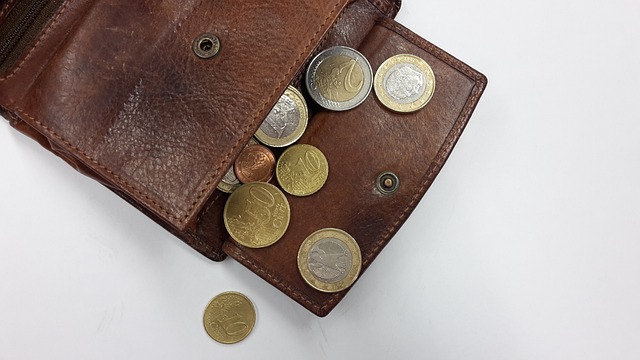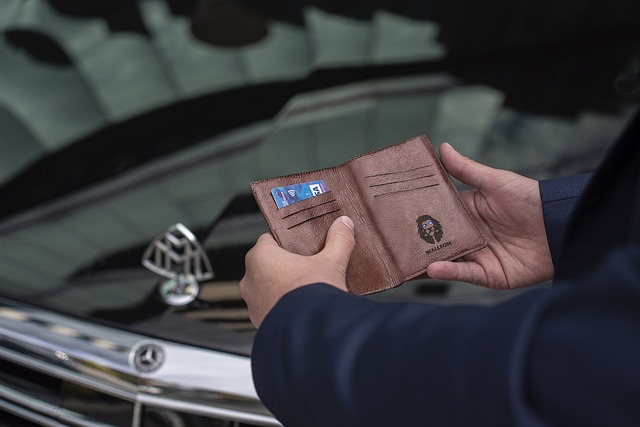The Complete Guide to Crypto Wallets
Author: Jameson Richman Expert
Published On: 2025-02-02
Prepared by Jameson Richman and our team of experts with over a decade of experience in cryptocurrency and digital asset analysis. Learn more about us.
As cryptocurrencies continue to gain popularity and acceptance, understanding how to securely store and manage digital assets is crucial. This is where crypto wallets come into play. In this comprehensive guide, we will explore the various types of crypto wallets, their features, advantages and disadvantages, and tips for choosing the right wallet for your needs.

What is a Crypto Wallet?
A crypto wallet is a digital tool that allows users to store and manage their cryptocurrencies. It does not store the actual coins, but rather the private keys that give access to their blockchain addresses. Think of it like a virtual wallet: while your cash resides in your bank, you use the wallet to manage access to that cash. Crypto wallets come in several forms, each with its own unique features.
Types of Crypto Wallets
1. Hot Wallets
Hot wallets are connected to the internet and are typically used for everyday transactions. These wallet types are convenient but also more vulnerable to cyberattacks. Common examples include:
- Web Wallets: Hosted services that allow users to access their funds through any web browser. Examples include exchange wallets from platforms like Binance and MEXC.
- Mobile Wallets: Applications on smartphones that allow for cryptocurrency transactions. They are user-friendly and often come with QR code scanning capabilities.
- Desktop Wallets: Software installed on personal computers, giving users full control over their funds. However, they are susceptible to malware and hacking.
2. Cold Wallets
Cold wallets are offline storage solutions and are considered the safest way to keep cryptocurrency. They are less convenient for everyday use but provide better security. Common types include:
- Hardware Wallets: Physical devices that store your private keys offline. Examples include Trezor and Ledger wallets.
- Paper Wallets: Physical printouts of your public and private keys. While highly secure from online threats, they can easily be lost or damaged.
Choosing the Right Wallet
When selecting a crypto wallet, consider the following factors:
- Security: Assess the security features offered by the wallet. Look for wallets with two-factor authentication, backup, and recovery options.
- Control: Decide whether you want to hold your private keys or rely on a third-party service.
- Usability: Choose a wallet that is user-friendly and meets your needs. Some wallets are designed for casual users, while others cater to advanced traders.
- Supported Coins: Ensure the wallet supports the cryptocurrencies you plan to hold.

Benefits of Using Crypto Wallets
There are numerous advantages to using crypto wallets:
- Enhanced Security: Wallets provide protection against hacking, theft, and fraud. Cold wallets, in particular, are known for their high-security standards.
- Control Over Funds: Users maintain complete control and ownership of their digital assets, as opposed to relying on third-party exchanges.
- Easy Transactions: Wallets simplify the process of sending and receiving cryptocurrencies, making it easier for users to manage their assets.
Popular Crypto Wallets
There are many crypto wallets available today, but here are some popular options:
1. MetaMask
MetaMask is a browser extension that allows users to interact with the Ethereum blockchain. It’s beginner-friendly and offers an integrated decentralized application (dApp) browser.
2. Exodus
Exodus is a user-friendly desktop and mobile wallet that supports a wide range of cryptocurrencies. It boasts built-in exchange features and an intuitive design.
3. Ledger Nano S
Ledger Nano S is a hardware wallet known for its robust security features. It supports multiple cryptocurrencies and offers a secure offline storage option.
Common Mistakes to Avoid
When using crypto wallets, avoid these common pitfalls:
- Neglecting Security: Always enable two-factor authentication and consider using cold wallets for long-term storage.
- Forgetting Recovery Phrases: Ensure you write down and securely store your recovery phrase. Losing it could mean losing access to your funds.
- Using Unreliable Wallets: Research wallets thoroughly before use. Opt for wallets with good reputations and positive user reviews.

Storing Your Private Keys
Your private keys are critical for accessing your cryptocurrency. Here are some ways to store them securely:
- Write Them Down: Store your private keys in a secure physical location, like a safe. Avoid storing them digitally to minimize hacking risks.
- Use a Password Manager: If you prefer storing your keys digitally, consider using an encrypted password manager.
- Consider a Hardware Wallet: Hardware wallets keep your private keys offline, providing an additional layer of security.
How to Get Started with Crypto Wallets
Getting started with a crypto wallet is easier than you might think:
- Choose a wallet type based on your needs (hot or cold).
- Download or purchase your chosen wallet.
- Set up your wallet by creating a strong password.
- Backup your wallet and write down your recovery phrase.
- Transfer funds from an exchange or purchase directly to your wallet.
Conclusion
Crypto wallets are an essential aspect of cryptocurrency management. Understanding the different types, risks, and benefits of each wallet type can help you make informed decisions about securing your digital assets. With effective wallet management, you can navigate the exciting world of cryptocurrency safely and securely.
Ready to dive into cryptocurrency? Consider signing up for Binance to get started with a variety of crypto options: Binance Registration. If you prefer MEXC, you can register here: MEXC Registration.